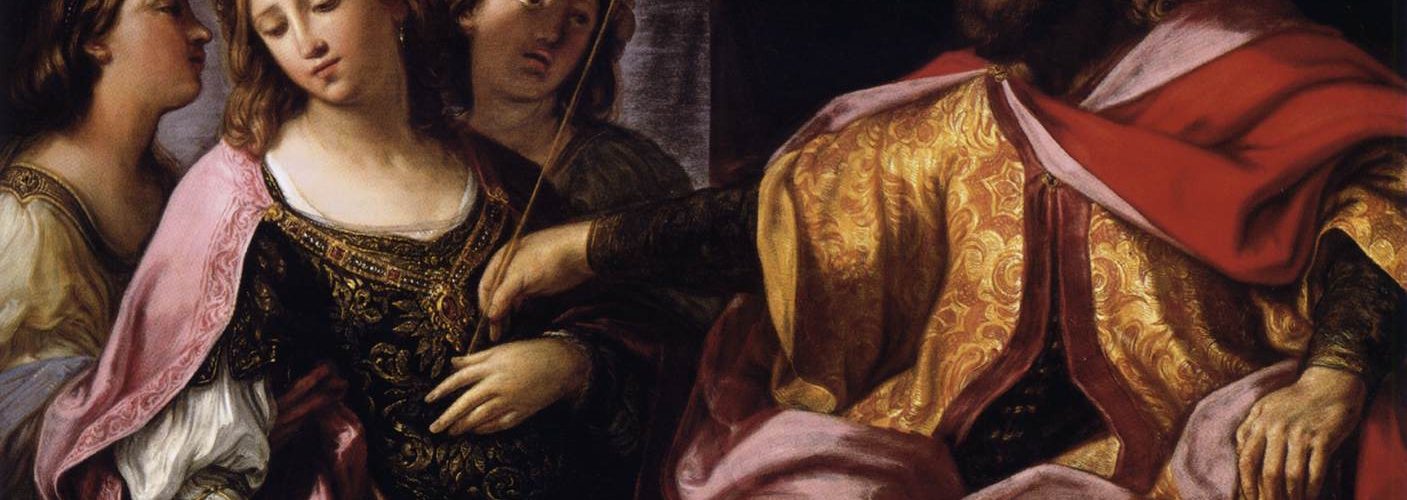 The Jewish holiday of Purim, based on the Bible’s book of Esther, commemorates the saving of the Jewish people from genocide at the direction of the Persian official Haman.
The Jewish holiday of Purim, based on the Bible’s book of Esther, commemorates the saving of the Jewish people from genocide at the direction of the Persian official Haman.
[Read about Esther in the Encyclopedia of The Bible on Bible Gateway]
According to the Cultural Backgrounds Study Bible (one of the many study references available to you when you become a member of Bible Gateway Plus), the story is set during the era when the Persians ruled over Judah, in the reign (486—465 BC) of King Xerxes (Hebrew “Ahasuerus”):
The Jews became subjects of the Persian Empire when Cyrus the Great, king of Media and Persia, conquered Babylon in 539 BC. (Babylon had taken over Judah in 605 BC, and many Jews were deported to Babylon as captives from 605 to 586 BC.) Even though Cyrus had issued a decree allowing the Jewish captives to return to their homeland, many had chosen to remain in Babylon. After living there for almost half a century, they had become well settled and prosperous. The thought of returning to the ruined and isolated land of Judah had little appeal to them. Some of these Jews made their way even farther east, to the new seat of power in the Eastern world: Susa, the capital of Persia. There they again found that ambitious and capable individuals could attain positions of affluence and influence, as the case of Nehemiah, cupbearer for King Artaxerxes I, demonstrates. Esther’s story is set in this community of Persian Jews — far from their homeland, yet true to their heritage.
When discussing Esther’s literary context, we cannot fail to take note of its conspicuously “secular” character. Not only is Esther the only biblical book that contains no reference to God; it also contains no prayers, sacrifices, or any other religious observances. To say that this absence is unusual would be an understatement: almost all ancient Near Eastern literature is permeated with religious language. The lack of religious references in the book of Esther is highly remarkable — and almost certainly intentional. Perhaps there is some deliberate irony intended, for God seems to lurk everywhere in the background of this book, in the unlikely coincidences and remarkable deliverances that make the story so entertaining.
It only takes a minute to create your own Bible Gateway free personal account and you’ll immediately upgrade your Bible Gateway experience. Do it right now!
 [Read the Bible Gateway Blog post, Esther is the Tale of Evil in a World Where God Seems Absent: An Interview with Mike Cosper]
[Read the Bible Gateway Blog post, Esther is the Tale of Evil in a World Where God Seems Absent: An Interview with Mike Cosper]
One of the most famous heroines of the Bible, Esther is the perfect example of a regular person who finds herself suddenly and unexpectedly in a position to do great good—or to refrain from acting, and let terrible evil play out. When she confronts the Persian king to plead on behalf of her people, she is risking her life. When Esther points this out to her uncle Mordecai, he responds with an inspiring challenge: “who knows but that you have come to your royal position for such a time as this?” (Esther 4:10-14).
 [Read the Bible Gateway Blog post, How Esther Shows God Has a Purpose for Your Life: An Interview with Dr. Tony Evans]
[Read the Bible Gateway Blog post, How Esther Shows God Has a Purpose for Your Life: An Interview with Dr. Tony Evans]
When you become a Bible Gateway Plus member, you’ll want to study the book of Esther with such questions and answers (from the NIV Quest Study Bible) as:
- Why did Mordecai tear his clothes? (4:1–2)
- Why did Esther need the edict explained? (4:8)
- How often did a queen typically see the king? (4:11)
- Couldn’t the queen have escaped such an edict? (4:13–14)
- Why was Mordecai so sure that Esther would die if she kept silent? (4:14)
- From what “other place” would deliverance for the Jews have come? (4:14)

- Why isn’t God mentioned at all in the book of Esther? (4:16)
- Why did Esther wait for the second banquet to make her request? (5:8)
- Why did Haman build such a high pole? (5:14)
- Why did Esther still have to plead with Xerxes? (8:3)
- Why couldn’t the king change his own decrees? (8:8)
- Was there time to get the new orders delivered before the slaughter? (8:9–10)
- Why was this date chosen for Jews to avenge themselves on their enemies? (8:12–13)
Sign up to get the Know the Bible free email lesson series from Bible Gateway
[Read the Bible Gateway Blog post, Purim and the Book of Esther]
So they called these days Purim, after the name Pur. Therefore, because of all the words of this letter, what they had seen concerning this matter, and what had happened to them, the Jews established and imposed it upon themselves and their descendants and all who would join them, that without fail they should celebrate these two days every year, according to the written instructions and according to the prescribed time, that these days should be remembered and kept throughout every generation, every family, every province, and every city, that these days of Purim should not fail to be observed among the Jews, and that the memory of them should not perish among their descendants. Esther 9:26-28
[Read the book of Esther using the study notes in the Reformation Study Bible on Bible Gateway]
Learn more about the book of Esther and all the books of the Bible by upgrading your Bible Gateway experience with Bible Gateway Plus. Try it right now!
The post Purim and the Bible appeared first on Bible Gateway Blog.











